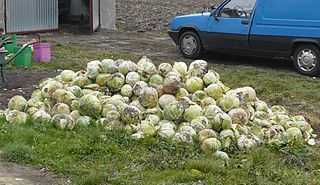From Guest Blogger Jane: How to Prevent Home Food Waste

You won’t need to throw as much food as you usually do if you follow these simple tips:
Plan your shopping
Planning ahead will save you headaches and wasted money for something that you will never eat. If you usually do a weekly shopping, take a calendar a day before and mark how many of the week-days you will have the time to cook. Plan only on 2 days of cooking and 2 days of eating the leftovers. Don’t plan on big meals, after the end of the work-day. We are usually very tired and all we need is a quick meal and time for resting. When you go shopping, avoid buying things that were not on the list – that could be any kind of junk food, that your body definitely doesn’t need, or things that catch you attention and you might think that you can cook something really fancy with it, but in the end it is just forgotten in the fridge. Don’t buy things on discount or in too big quantities. You can have a storage of foods with long expiration dates like flour, salt, sugar, oil and other things like that, but still – don’t buy too much of them. You can always go to the store again whenever you need some them.
Reorganise your fridge
Make everything viewable. Put foods that go bad faster on top of everything so that every time you open the fridge, you can see what’s there to be eaten. Put everything in transparent boxes, and save the leftovers from cheese, ham or bacon so you can make pizza, pasta, sandwich, soup or sauce later on. You also don’t have to throw away all the jars when you see that the expiration date is coming, that is the recommendation date when you can last buy the product from the store, you can usually use what’s inside a few days after it. And the last thing to do when organising your fridge is to check the settings of it – make the temperature cooler. Usually a temperature of 1 to 5 degrees Celsius is the normal temperature at which your food will stay fresh and preserved for a longer time.
Cook less than you think you need
You don’t always have to make great quantities of meals. Cook even less than you think you’d eat if you have to eat it twice. This is how you can regulate the amount of food that you buy, cook and eat. Observe your habits and always plan ahead(yes, planning is the most important part!).
Freeze your leftovers or share them with someone else
When you know that won’t eat those leftovers from last night in the next few days(or weeks), the best decision is to freeze them or even more – share them with someone. You can always ask your friends if they want something to eat or you can help a homeless person by giving them a meal. Don’t hesitate, there are many people who are starving and you can help them by giving them the leftovers which you’d probably throw away in few days anyway.
